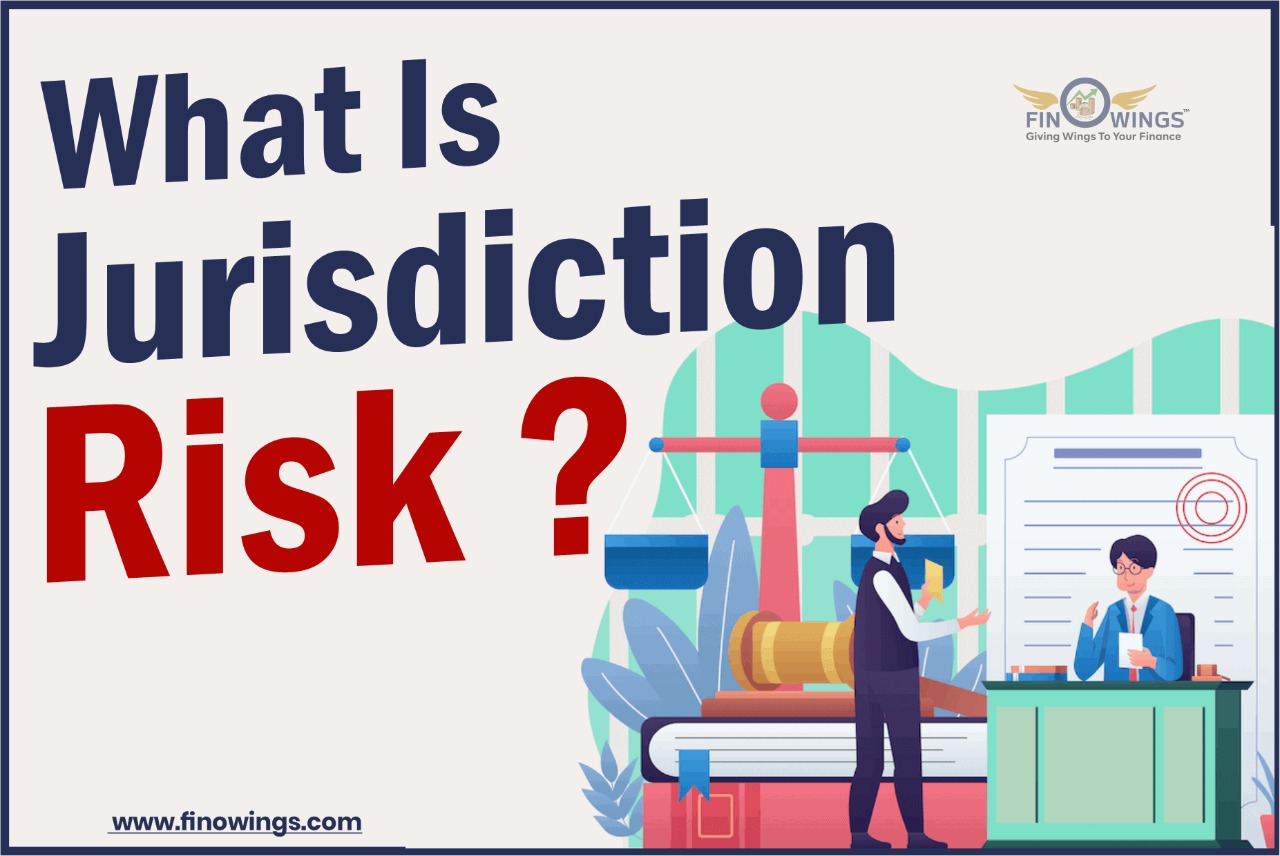Home >> Blog >> What is Jurisdiction Risk?
What is Jurisdiction Risk?

Table of Contents
Introduction
While investing, every investor tries to diversify their portfolio to minimize risk and maximize return on the investment. As a result, they invest in various securities, including equities, futures, options, and government securities.
This diversification stabilizes the portfolio and lowers the risk associated with your investment. However, risk and investment go hand in hand; even if you use several strategies, your investment is still subject to risk.
No, I'm not trying to scare you out of investing, but you must accept the harsh reality. Nothing is a risk-free investment, whether you invest in the stock market, real estate, or gold. Every investment is prone to some level of risk.
Even though there are some smart strategies you can use to reduce your risk, it's still important to understand the risks you might encounter when investing. Keeping this in mind, we will discuss one such risk of investing: jurisdiction risk. Continue reading to learn everything there is to know about jurisdiction risk.
What is Jurisdiction Risk?
Investments in another country or jurisdiction may expose you to the risk known as jurisdiction risk. Every country has regulations and rules that you must adhere to if you want to avoid being in any legal trouble. Therefore, you must abide by their laws, regulations, or jurisdiction when conducting business, lending, or borrowing money abroad.
If these rules and regulations change for any reason, be it legal, regulatory, or political, it will directly impact your business and raise the risk associated with your investment. Large financial institutions that transact with significant amounts of money run a higher risk.
These organizations often engage in money laundering or provide illegal funding. These institutions must implement special controls to reduce jurisdiction risk because such offences carry severe penalties in other countries.
Due to these and other factors, there is a high likelihood that your investment in a foreign country will suddenly decline, causing you to lose money. However, a good hedging strategy can lessen this risk.
How does Jurisdiction Risk Work?
Every nation occasionally experiences changes, whether monetary, political or exchange rates. These changes can affect any investments you have made or businesses you are running in a foreign country.
These changes add the risk of volatility; hence investors demand higher returns to compensate for the risk they face. Economic and political instability are two main jurisdiction risks in foreign nations that can negatively affect investment.
Money laundering and funding for illegal activities are also major concerns while conducting business, lending money, and borrowing money abroad. These variables have a direct relationship to the currency of that particular country and may contribute to changes in the value of specific currencies.
Several countries have reported many occurrences related to war, political unrest, or international money laundering cases. Such incidents impact the investment majorly and wipe out a lot of wealth in a fraction of the time.
As a result, you must assess the risk of your investment before putting your money into another nation. Some organizations compile a list of countries more vulnerable to jurisdiction risk. You can review the list and conduct the necessary research on the nation's political and economic stability. In addition, using an effective hedging strategy can also be beneficial.
Why does Jurisdiction Risk Important
In order to comprehend the importance of jurisdiction risk, we will use a hypothetical example. Assume you have two choices for international investments. You can either purchase the bond issued by the Nigerian government or bonds issued by the Canadian government.
Which one are you going to pick?
Regarding jurisdictional risk, Canadian government bonds are a better choice than Nigerian ones. However, because the risk is greater, the return on Nigerian bonds is higher. So now you can decide whether to choose Nigerian or Canadian bonds per your risk appetite.
By providing higher returns, jurisdiction risk encourages borrowing in poorer nations. As a result, this risk causes volatility and significantly affects the financial market. On the other hand, jurisdiction risk can aid businesses in arranging to finance in underdeveloped countries.
However, given the higher risk, things could go the other way, and fewer investors might be willing to take a chance. As a result, there is a contradiction regarding the impact of jurisdiction risk. Additionally, it might affect a nation's economy.
For instance, if the United States, a developing nation with the lowest jurisdiction risk, defaults, investors will sell the securities in that nation's currency. It may impact the nation's economy, that of its neighbouring countries, and the reputation of brands associated with that country.
What is the Role of FATF in Jurisdiction Risk?
Financial Action Task Force, also known as FATF, is an intergovernmental organization that develops policies. To combat money laundering and illicit financing. This organization develops policies at the national and international levels. The organizations aim to create a safe environment for financial investment and develop and promote international standards.
Since 2000, the organization has published two documents thrice a year. This document contains a list of the nations that make insufficient efforts to stop funding terrorism or money laundering. FATF labelled these countries as non-cooperative countries or territories (NCCTs).
Before investing in any foreign nation, you can review this list to make an informed decision. You can get significant knowledge about the jurisdiction risk of a particular company and evaluate your decision to invest.
The list that the FATF released in June 2021 includes Albania, Barbados, Botswana, Burkina Faso, Cambodia, Cayman Islands, Haiti, Jamaica, Malte, Mauritius, Morocco, Myanmar, Nicaragua, Pakistan, Panama, Philippines, Senegal, South Sudan, Syria, Uganda, Yemen, and Zimbabwe.
These countries are weak enough to combat many jurisdiction risks and are committed to working with FATF to fight the deficiencies and develop better policies.
Example of Jurisdiction Risk
Most investors face the common jurisdiction risk of currency fluctuation in the financial market. As a result of the foreign exchange risk, investments made through international financial transactions may lose value even though you can lower this risk with a well-structured hedging strategy.
Besides, the sudden war in countries can also be defined as a jurisdiction risk. For example, we have observed how the conflict between Ukraine and Russia harms the economies of both nations as well as the investors and companies that do business there.
Numerous nations' political unrest contributes to the risk of jurisdiction as well. Moreover, the conflict between the two main political parties could also harm the country's financial market. Consequently, a nation's political stability is also essential.
The Bottom Line
Before investing your money in any foreign investment, evaluating a specific country's jurisdiction risk is necessary. Jurisdiction risk plays a significant role when investing in foreign nations. You can check the list of FATF. It is also advisable to research that country's economic and political stability. It will assist you in making a well-informed choice or mitigating risk. You can also consult Agarwal Corporate to learn the best hedging or investment strategies. The experts provide pointers and techniques for making money on the stock market.
Author
Frequently Asked Questions
FATF is an organization that develops international guidelines and regulations to combat terrorism and money laundering. The organization published a list of nations with a high jurisdiction risk.
Pakistan was recently removed from the organization's "grey list" as a result of significant improvement.
The uncertainty a nation experiences due to many reasons, such as its economy, politics, or level of terrorism, has an impact on its jurisdiction risk.
















